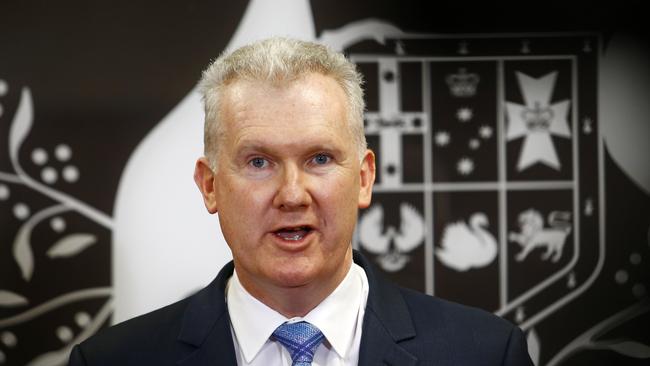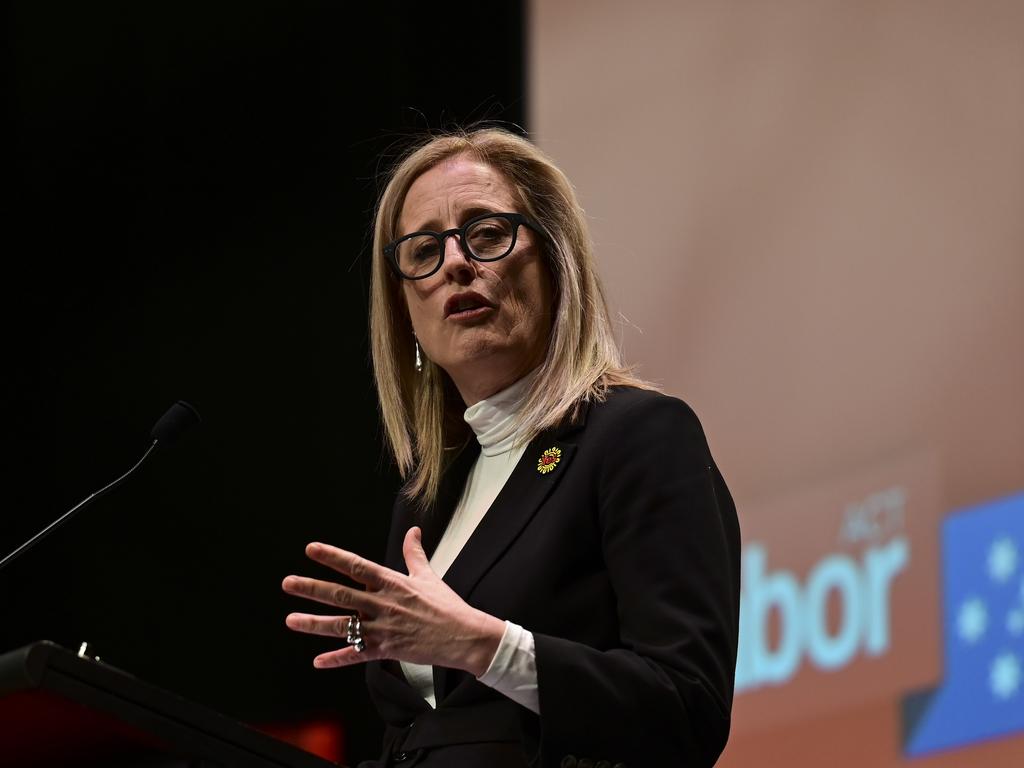IR laws to have modest economy-wide impact on wages
Labor says new IR laws will deliver high pay increases to some individual workers.

Workplace Relations Minister Tony Burke says the economy-wide impact on wages of the Albanese government’s second wave of industrial relations changes will be “very modest” while delivering high increases in take home pay to some individual workers.
Mr Burke said after 11 quarters of wages not keeping up with prices, the moderating inflation rate had caught up with wages growth.
“We are finally at the point now where those lines start to cross and hopefully now moving into the territory of real wages growth again,” he told Sky News. “For the people who have run the hysteria about wage price spirals and things like that, what we’ve seen is inflation moderating at the same time that wages are growing.”
He reiterated that Labor’s second wave legislation would be introduced into federal parliament in September and he hoped it would be passed by the end of the year, although that depended on the Senate
He said the first wave of workplace law last year was designed to move wages across the board through changes to the bargaining laws and the role of the Fair Work Commission.
However, he said the second wave was about closing loopholes so “the impact across the board in total wages is not as great but for individual workers who are affected by these loopholes, it is very significant”.
For example, criminalising wage theft would make a big difference for a worker experiencing wage theft while there would be a big change in job security for a casual worker rostered as permanent casual who wanted to convert to permanency.
“Across the economy, the impact of this legislation will be very modest but the impact for individual workers who are affected detrimentally by these loopholes, it will make a really significant difference for their take home pay,” Mr Burke said.
Australian Industry Group chief executive Innes Willox said the ABS data appears likely to understate the ongoing build-up of wage pressures.
“As the ABS notes, an unusually high proportion - 38 per cent- of wage increases negotiated in the June quarter saw increases of greater than 4 per cent,” he said
“This is more than double the proportion in the same quarter in 2022 (17 per cent).”
The Australian Chamber of Commerce and Industry said it was concerned that the current growth in wages was not tied to any improvement in productivity.
Mr Burke said the big shift in productivity came after the passage of the first wave, which saw employers return to the bargaining table, while the second wave was closing loopholes where the productivity value had been determined. “What’s happening with these loopholes is where productivity value has been agreed to and it’s not actually being paid, it’s being undercut,” he said.








To join the conversation, please log in. Don't have an account? Register
Join the conversation, you are commenting as Logout